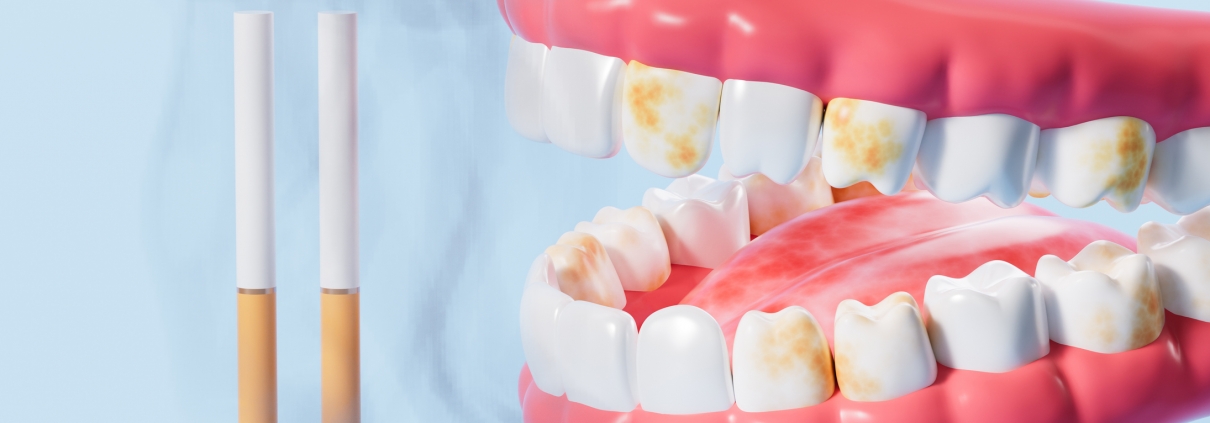The Importance of Dental Cleaning for Smokers
Dental cleaning is a fundamental aspect of oral hygiene, crucial for maintaining healthy teeth and gums. However, for individuals who smoke, the importance of regular dental cleanings is amplified due to the heightened risks tobacco use poses to oral health. In this article, we’ll delve into why dental cleaning is particularly crucial for smokers and how it can help mitigate the adverse effects of smoking on oral health.
The Impact of Smoking on Oral Health:
Before delving into the significance of dental cleaning for smokers, it’s essential to understand the detrimental effects smoking can have on oral health. Smoking is a major risk factor for various oral health issues, including:
Gum disease:
Smoking weakens the immune system, making smokers more susceptible to gum disease. It also impairs blood flow to the gums, hindering their ability to heal.
Tooth discoloration:
Nicotine and tar in tobacco products can stain teeth, leading to yellowing or browning of the enamel.
Bad breath:
Smoking can cause persistent bad breath (halitosis) due to the accumulation of tobacco residue and bacteria in the mouth.
Oral cancer:
Smoking increases the risk of developing oral cancer, affecting the lips, tongue, throat, and gums.
The Importance of Dental Cleaning:
Dental cleaning, also known as prophylaxis or scaling and root planing, involves the removal of plaque, tartar (hardened plaque), and stains from the teeth and gums. For smokers, regular dental cleanings are essential for several reasons:
Plaque and Tartar Removal:
Smoking promotes the buildup of plaque and tartar on the teeth, increasing the risk of gum disease and tooth decay. Dental cleanings effectively remove these deposits, preventing their progression to more serious oral health issues.
Gum Disease Prevention:
Smokers are at a heightened risk of developing gum disease due to the harmful chemicals present in tobacco smoke. Professional dental cleanings help remove bacteria and toxins from the gums, reducing inflammation and lowering the risk of gum disease.
Early Detection of Oral Health Issues:
Regular dental cleanings provide an opportunity for dentists to assess the oral health of smokers and detect any early signs of problems such as gum disease, tooth decay, or oral cancer. Early detection allows for prompt intervention and treatment, minimizing the potential impact on oral health.
Fresher Breath:
Smoking can contribute to chronic bad breath, also known as halitosis. Dental cleanings help remove tobacco residue, plaque, and bacteria from the mouth, resulting in fresher breath and improved oral hygiene.
Enhanced Oral Aesthetics:
Tobacco use can cause tooth discoloration and staining, detracting from the appearance of the smile. Professional dental cleanings can help remove surface stains, restoring the natural brightness of the teeth and enhancing oral aesthetics.
Tips for Smokers:
In addition to regular dental cleanings, smokers can take proactive steps to protect their oral health:
Quit smoking or use cessation resources to reduce the harmful effects of tobacco on oral tissues.
Practice meticulous oral hygiene, including brushing teeth twice daily with fluoride toothpaste and flossing regularly.
Attend dental check-ups every six months or as recommended by your dentist for comprehensive oral health assessments and cleanings.
For smokers, prioritizing oral health through regular dental cleanings is paramount in mitigating the adverse effects of tobacco use on the teeth and gums. By removing plaque, tartar, and stains, dental cleanings help prevent gum disease, maintain oral hygiene, and detect early signs of oral health issues. Combined with smoking cessation efforts and diligent oral hygiene practices, dental cleanings play a crucial role in preserving oral health and promoting overall well-being.




